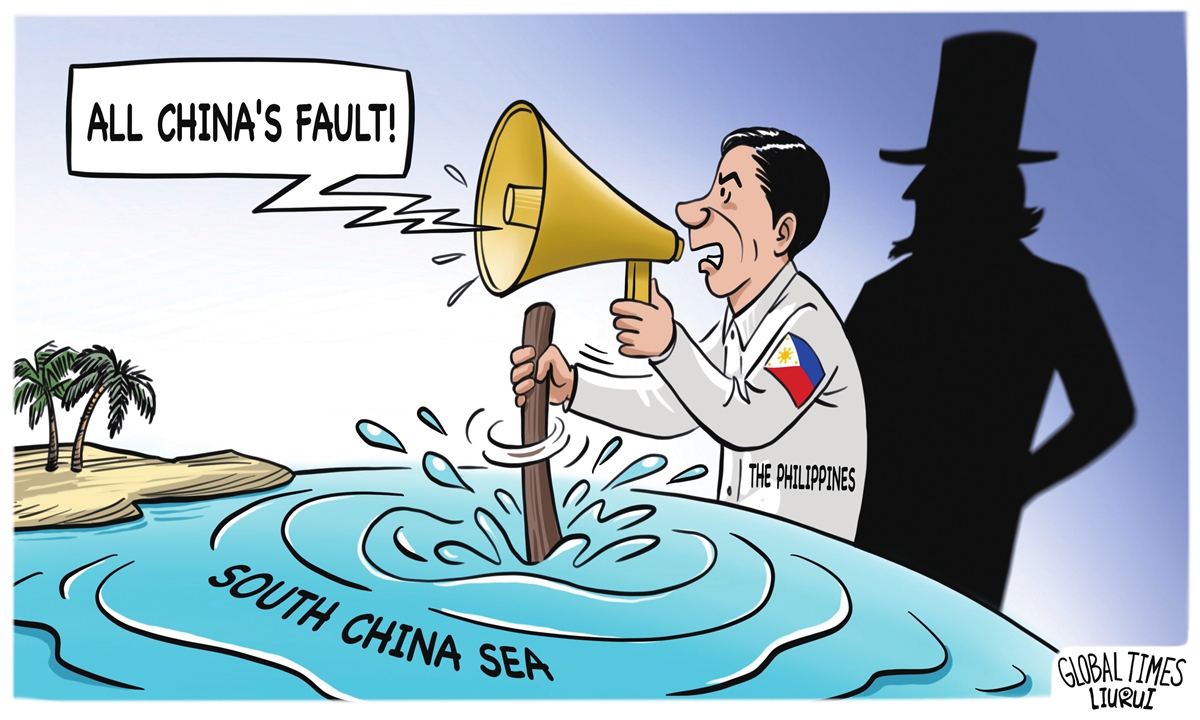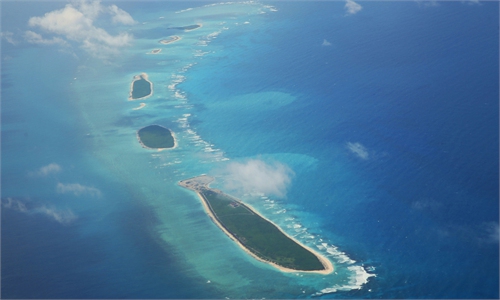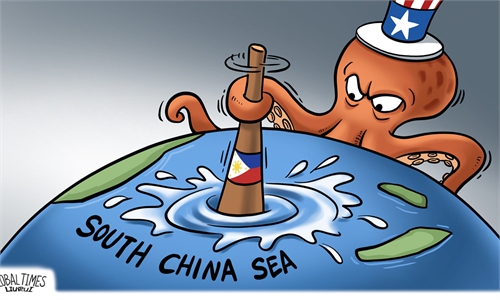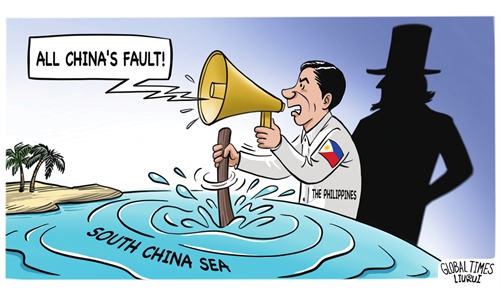Philippines urged to stop hyping CCG’s law enforcement regulations
Manila’s provocations disregard collective interests of region: experts

Illustration: Liu Rui/GT
As the Philippines continues to hype up the law enforcement regulations of the China Coast Guard (CCG) ahead of the Shangri-La Dialogue, experts noted that the country's baseless accusations are an attempt to mislead the international community.
They also said that the Philippines' frequent provocations do not align with the common interests of regional countries in maintaining peace and stability in the South China Sea.
According to Reuters, Philippines President Ferdinand Marcos Jr said on Wednesday that China's recent regulations on administrative law enforcement procedures of Coast Guard agencies, which are set to take effect on June 15, could result in the "detention of foreigners" in the South China Sea, and were an escalation and "worrisome."
Mao Ning, a Chinese Foreign Ministry spokesperson, refuted Marcos' wrongful remarks on Wednesday, noting that the regulations were rolled out by CCG to standardize the administrative law-enforcement procedures of Coast Guard agencies and better uphold order at sea. "It is consistent with universal practices. Individuals and entities have no need for concern as long as they have not done anything illicit," Mao said at the regular press conference.
Chen Xiangmiao, director of the World Navy Research Center at the National Institute for South China Sea Studies, told the Global Times on Thursday that the CCG's regulations are aimed at regulating maritime law enforcement activities within China's sovereign jurisdictional waters and are not targeted at any specific country.
"The regulations on law-enforcement procedures are based on international laws and China's domestic laws, and are applied uniformly to all vessels and personnel, including those from China," Chen said, noting that the Philippines' accusations are groundless and unfounded.
Xu Liping, director of the Center for Southeast Asian Studies at the Chinese Academy of Social Sciences, told the Global Times on Thursday that the new regulations are a manifestation of China's normal law enforcement and protection of rights. "China's regulation of maritime law enforcement activities in accordance with relevant international laws demonstrates the country's commitment to upholding its reputation," Xu said.
Marcos' hyping of CCG's regulations came after the Philippine foreign ministry issued a statement on Monday protesting China's implementation of the annual fishing ban in the South China Sea, saying that it "raises tensions" in the South China Sea, despite the fact that this Chinese policy has been widely recognized for its ecological, economic and social benefits as an important means of conserving marine fisheries resources in waters around China.
Experts reached by the Global Times noted that the recent hype around the South China Sea issue by the Philippines ahead of the 21st IISS Shangri-La Dialogue are aimed at creating some news buzz and thereby helping the country to turn the upcoming conference into a venue for promoting its illegal claims.
"By hyping up China's recent regulations, the Philippines is actually using this to attract international attention to China's actions in the South China Sea, and attempting to portray China's legitimate actions as a challenge to the Philippines," Chen said. Given that the Philippine president will deliver a keynote address on Friday to mark the opening of the Shangri-La Dialogue, Chen predicted that Marcos will continue to mention this matter and try to deceive the international community for sympathy.
Echoing Chen's words, Xu noted that the Philippines has been consistently trying to paint itself as a victim of Chinese bullying in the South China Sea. But in truth, the country is actually asserting its illegitimate rights and claims in the region.
The Philippines' recent series of hype and tough rhetoric will only serve to worsen the existing disputes between Beijing and Manila, heighten regional security tensions, and draw increased international attention to the South China Sea issue, analysts said.
"The peace and stability of the South China Sea are the common denominator of regional countries, and the Philippines' frequent provocations undoubtedly undermines this common denominator, seriously disregarding the collective interests of the region," Xu said.
The Philippine side should abide by its commitments, stop provoking, and truly return to the correct track of resolving differences through dialogue and consultation with China, analysts said. China will also continue to clarify the facts and resolutely defend its national maritime sovereignty and interests, they said.



